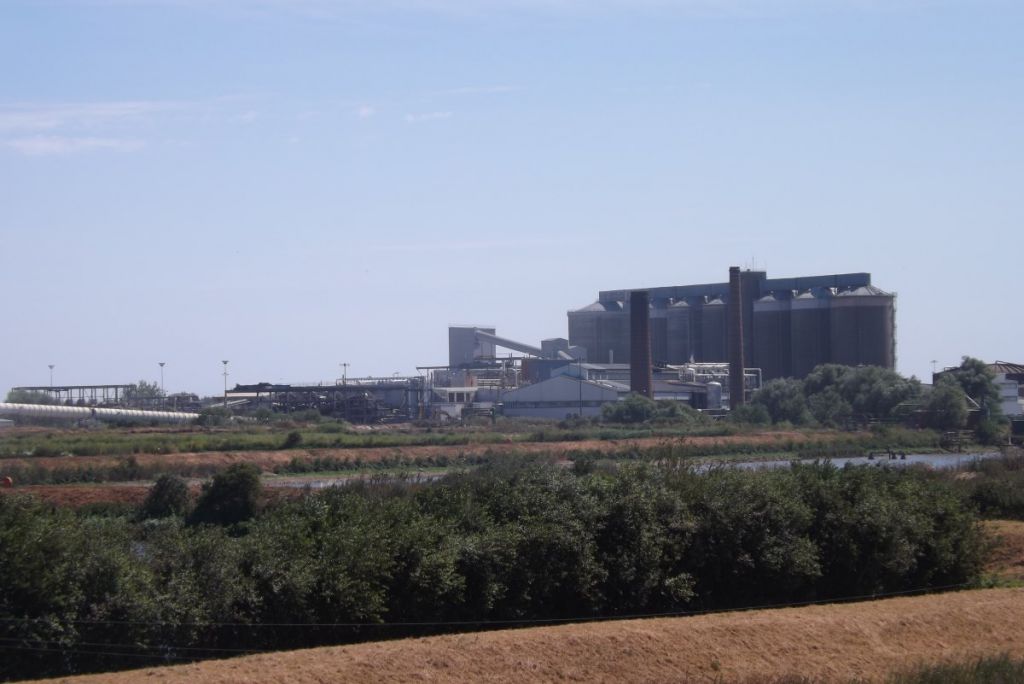British Sugar topsoil

Last week, we were kindly invited by British Sugar to visit their factory in Wissington, Norfolk. It was not only interesting but great fun too, with our hosts having laid on a great package of study visits, ending up in a pub in Bury St Edmunds watching the football... but that's another story!
You may well wonder what the connection is between sugar and soil. It's simply this - every year British Sugar receive getting on for 10 million tonnes of sugar beet to their four factories in East Anglia. Although they beets have been cleaned to some extent at the farm, there deliveries still include something like 300,000 tonnes of soil, all of which is of course carefully washed off at the factories before the sugar production starts.
About twenty years ago, our generous host Andy Spetch came up with the idea of doing something better with this resource, rather than just dumping it. So now, the water used for washing the beets is pumped into big settlement ponds - you can see one in front of the factory in the picture above. In the pond, the washed-off soil separates into its sand, silt and clay components, which settle in different areas. These soil components are then excavated from the ponds, and laid out to dry on the fields. The drying process takes up to 2 years, after which the soil components are mixed in exact proportions, which results in a totally consistent standard product.
Wissington is the biggest of the soil production sites, and here Andy also mixes the standard product with sands and compost to produce a limited range of special-purpose materials.
All in all, it was both instructive and enjoyable (if a bit dusty when on-site) - many thanks to Andy and Kim for having us!
